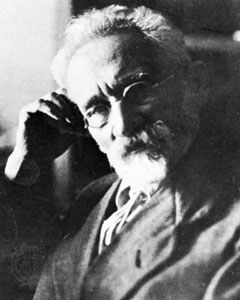The New Yorker ran Günter Grass's confession that he had been in the Waffen SS, as a teenager during the waning years of World War II. It was a good piece of writing.
Though it fed my paranoid fixation on how all (or most) older Germans were Nazis by either force, choice or momentum, I couldn't help thinking about my own grandfather who was of a similar age — eighteen — fighting around the same time as Grass. As fate and history would have it, my grandfather, a Dutch Jewish refugee fighting in a Dutch brigade in the British Army was wearing a very different uniform than Grass. I only know fragments of my grandfather's life at that time, it is not something he liked to talk about. But the basic narrative, being a young man caught up in history, scared shitless running through a bombed-out Europe, peeing your pants and shooting at whomever you happened to run into is no doubt similar for Jews, Nazis, Allies and Soviets alike.
Of course while my grandfather was advancing across northern France and the Netherlands, Günter Grass was retreating from the advancing Red Army in Central Europe. Are those superficial similarities or are they deep similarities? I generally have a very low tolerance for mitläufer or fellow travelers, all the little passive people who enable dictatorships and genocides across the world, but I'm not sure what to think. 
Grass's profound sense of guilt at having been part of not just the German army but of the Waffen SS (and an eager volunteer to boot) comes across loud and clear in the piece. At the same time his very declaration of guilt seems to me like a request for absolution. For each reason he righteously gives the reader why he shouldn't be pardoned, he seems to be asking the reader to say, "Well, you couldn't help it, you were young and everyone was drafted." I'm not interested in condemning Günter Grass but I am also not interested in giving him absolution.
I am fascinated by Germany in general and with Berlin in particular and go there is often as I can. I have good friends there and have to face the fact that I am culturally very Central European. Still when I am there I feel I can never get away from the looming sense of history, from my neurosis regarding my Jewiness in comparison to their Germaness and from the German neuroses, which complement mine all too well and tend to involve hang-ups on German guilt and Jewishness in general.
Perhaps that is part of the attraction.
Günter Grass eloquent but almost compulsive parsing and retelling of traumatic events sixty years in the past remind me all too well of my own upbringing among holocaust survivors of various stripes, only he lives with the burden of guilt, rather than with the other side of that coin.
Grass's obsessive-compulsive confession of guilt reminds me of a German friend of mine, who is my own age and has absolutely no rational reason to feel guilty, but seems to do so nonetheless. My reaction to Grass's essay, reminds me of the way I react when talking to Germans my own age about World War II (because when they find out I am Jewish they will start talking about it sooner or later) I feel their pain, but I am not interested in aiding their psychotherapy — or am I?
Germans and European Jews, it's like we are tied together by this trauma and destined to hobble along together for the forseeable future. Bloody miserable prospect.
On a related note, of course, I always prefer a confession of guilt to pretense of innocence. Kurt Waldheim who passed on to some other place last week, neither admitted to or made penance for the war crimes he very possibly committed, may he be remembered as an a*#hole by all. (Sorry G-d, I know I'm not supposed to rejoice at anyone's death but I can't help myself.)
Monday, June 18, 2007
Gunter Grass and his German Guilt Complex
Tuesday, June 12, 2007
Medieval Poetry and Why the Levant is F**cked

I rarely read poetry and when I do I don't always like it, but I was quite unexpectedly blown away by some exerpts from a book of Jewish poetry from Muslim and Christian Spain (pre 1492 -- of course) that I found in an article in the latest issue of the New York Review of Books. It was some of the most beautiful meditations on diaspora I have ever read and suprisingly prescient. Take this poem, by Ibn Ezra for instance:
[...]
My longing instead is to lay my threshold
near the threshold of learned men:
all I want is to move toward them,
although my iniquity holds me back
among a people that does not know me;
with whom I have no part or ease —
for when I greet them with kisses of peace,
they say I hurt them with my teeth.
So I know I read too much NYRB which I suppose is more for old farts than for young women in their twenties, but whatev, I am an old fart at heart. Incidentally the same issue of NYRB has a good article on the current situation in Lebanon and how it ties in to the mess to the South of there. It is depressing to see the infinite capability for factionalism that is endemic not only to Israeli and Palestinian, but apparently also Lebanese society. I guess the old adage "Two Jews, three opinions" applies to the Lebanese too. — I knew there was a reason Lebanese people call me "cousin" when they find out I'm Jewish.
Who in the world thought slicing up lucrative real estate along the Mediterranean into tiny nations was a good idea? Not sure what the solution is here but ethnic nationalism ain't it, that's for sure. Perhaps we should bring back the Ottoman Empire?
Tuesday, June 5, 2007
Major US and British Jewish Organizations: Good for the Jews or bad for the Jews?
My sister, Emma Clyne, is the chairman of the Jewish Society at SOAS (School of Oriental and African Studies) in London and as detailed in this blog from The Guardian she has run into trouble with other Jewish student organisations in Britain due to her efforts to host a panel discussion on the impacts of nationalism on Jewish identity. She has also tried to keep the SOAS J-Soc a purely cultural/ religious Jewish organization that is not unquestioningly pro-Israel.
By "not unquestioningly pro-Israel" I mean just that. the SOAS J-Soc does not aim to be anti-Zionist, they are simply trying to present the kind of dialogue and range of opinion that is present within Israel itself. Not surprisingly there has been hell to pay as well as some attention in national media.
Having attended Columbia University during the widely publicized MEALAC/ Columbia Unbecoming controversy I am both heartily sick of and intimately familiar with the kind of major Jewish campus organizations that like to cry anti-Semitism as soon as anyone says anything negative about Israel. (And in the process losing any credibility when trying to bring attention to the anti-Semitism that actually does exist within some quarters.) For some reason, it seems that on British and American campuses it is not ok to express an even remotly critical opinion of anything Israeli. Of course this leaves us with a climate in which Zionism, Israel and Israeli policy can never be discussed in any real sense of the word, not even within Jewish groups, and certainly not in dialogues between Jewish and Arab students.
Not only is this tiresome in the extreme, and strangely unlike Israel, where debates of this kind are completely acceptable, it also stifles any possible exchange of ideas and development of possible solutions to the present problems in Israel, the West Bank and Gaza. Has the Jewish tradition of debate and discussion been undone — at least in Britain and the US — by a desire to defend Israel at every turn? And why do American and British Jews feel this way when Israelis don't? Is it some sort of guilty conscience over not being in Israel? If so I suggest we get over it pronto.
